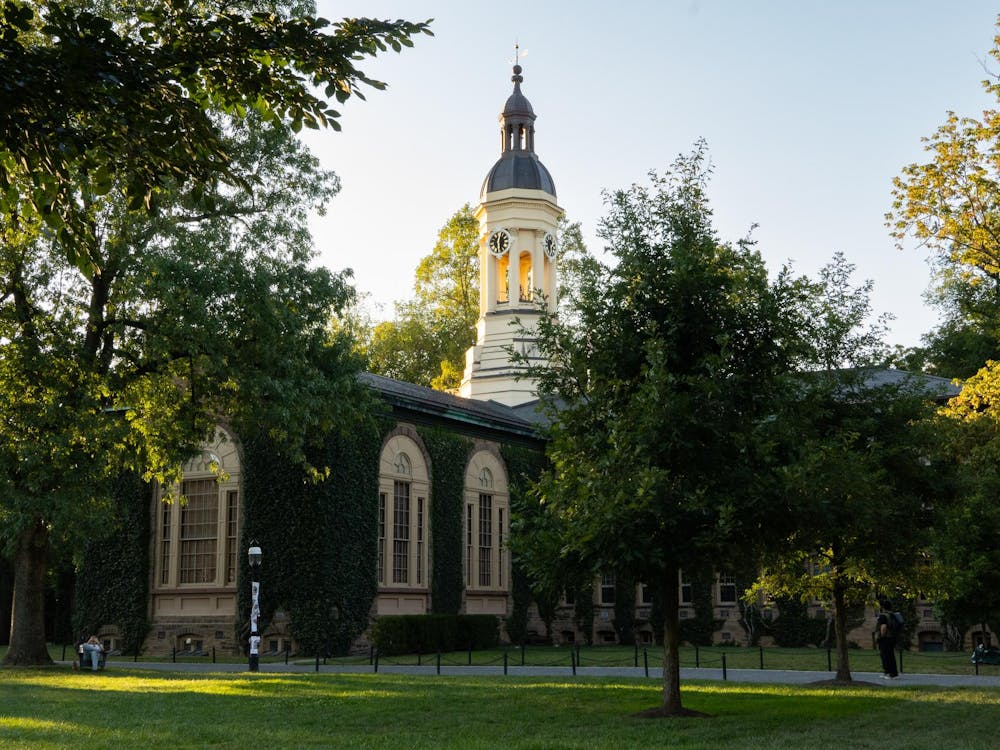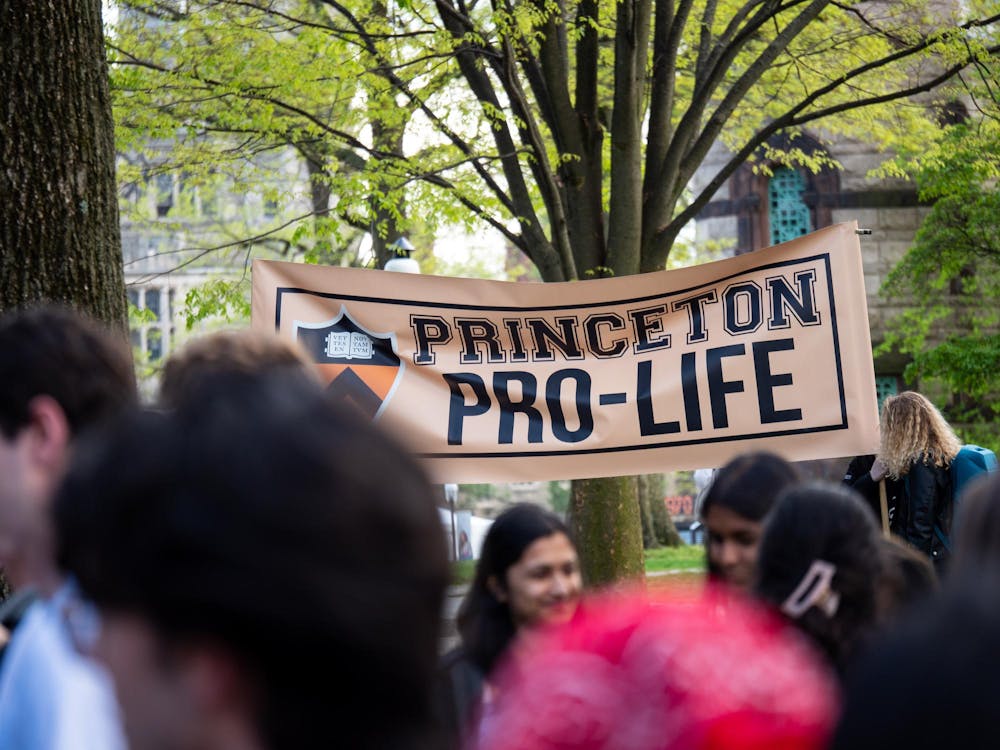Former Cabinet Secretary Chris Lu ’88visited the Princeton campus for his 25threunion andheadlined a panelon the opportunities and challenges facing Asian-Americans today. Between the panel and a reunion with his fellow editors of The Daily Princetonian — of which he is a former senior news editor — Lu spoke with the ‘Prince’ about his favorite Princeton memories, contemplating a career in journalism before going into public service and the push for an Asian American Studies program at the University.
The Daily Princetonian: How many times have you returned to Princeton since graduating?
Chris Lu: I’ve come for every major reunion. I think I probably came to my first five reunions. My wife and I come to a basketball game every year, so I was just here in February. I try to come back at least once a year. When I was on the‘Prince’board, I was here far more frequently.
DP:What was your favorite memory at Princeton?
CL: This is going to sound rigged, but it’s working at the‘Prince’ ...We’re about to do a reunion with our editorial board, and those are some of my best friends in the world, some of my best experiences. My education at Princeton is really working on The Daily Princetonian. It was a phenomenal learning experience. It helped me write well, analyze information very quickly, work under deadlines, and I really feel it helped develop some lasting friendships.
DP: Was there a story that you particularly enjoyed writing as a news writer?
CL: There’s not a particular one ... We used to do a joke issue. That was always a lot of fun. Back in the day when you did the joke issue, the hardest part was – this was before Photoshopping, so when you wanted to come up with funny photos, you literally had to cut the photos out and paste them — move somebody’s head on top of somebody’s body. We also covered the announcement that President Shapiro was going to be the president back in 1987, so working on breaking stories like that was fun. It was also the period of time when Sally Frank ['80]was filing suit against the all-male eating clubs, so that was the issue at the time. There were a lot of issues. For a while, my favorite part of covering Nassau Hall was sitting down and meeting with [University Vice President and Secretary] Bob Durkee [‘69] every week, and it’s so funny that I still see Bob Durkee, and Bob Durkee’s still there.
DP: What is the most important thing you learned at Princeton inside the classroom and the most important thing you learned outside the classroom?
CL: Outside of the classroom was my experience with the‘Prince.’I’d say inside the classroom was ... Princeton really developed my love of public service. I was a Woodrow Wilson School major, and you can’t help but go to a school like Princeton and not be inspired by all the great people that have come before you and have gone on to serve the country and serve the world. So just being exposed to them not only in the classroom but through lectures and readings really inspired me to spend my life in public service.
DP: Were you ever interested in pursuing a career in journalism?
CL: I was. Before I graduated, I really wanted to work on a newspaper, and my parents — I have Asian-American parents — said, ‘We don’t care if you want to go into journalism, but you have to get a graduate degree.’ And being a liberal arts major, I wasn’t sure what I was going to get my degree in, so I went to law school and then I kind of went off on this different path of being a law student, being a lawyer. I always wonder what my life would have been like if I had gone into journalism instead. I suspect I might not have done as well given what the state of journalism is these days, but I did think very seriously about it.
DP: What was your favorite class at Princeton?

CL: This is going to sound really rigged, but I took a class on presidential politics and I took another one on congressional politics, and I think both of those I just loved. I loved writing my senior thesis too, and again this is sort of an ironic thing. I wrote my senior thesis on how the press covers presidential primaries, so again it’s one of these people who ended up using what they learned in their thesis later on in life.
DP: What are some of the opportunities and challenges facing the Asian-American community that you discussed at the breakfast?
CL: One of the things I talked about is that when you go and speak to a group of Asian-American alumni at Princeton, you’re speaking to people who have succeeded, not only educationally but largely have succeeded economically as well. And that’s an important success story, but there’s also part of our community that hasn’t done as well. So I also talked about the struggles in our community and whether it’s high poverty rates in certain parts of our community, whether it’s some of the health issues we have — one out of every six Asian-Americans lacks health insurance. We have large incidence of diabetes, hepatitis B, HIV, discrimination, violence in our community. So basically kind of talking to these people who have done very well and saying it’s great that we’ve succeeded individually, but we really have an obligation to look after those people in our community who really haven’t done as well.
DP: What are your thoughts on theAsian American Students Association’s effortsto create an Asian American Studies certificate program at the University?
CL: I am disappointed that Princeton hasn’t made more progress on this issue. This is an issue that we were focusing on 25 years ago, coming up with an Asian American Studies program here. When I said that this morning, there were some older alums who said, ‘No. We’ve been working on this for 40 years.’ So I’m disappointed that Princeton still does not have that. I think that it’s an important gap in the educational possibility for students here. I’m hopeful that there will be some progress on this issue.
DP: What have you been doing since you left the White House, and what do you see in your future?
CL: I’ve been at the White House for four long years; I have been with Barack Obama for eight years. I was just tired. In the last three months, I’ve done this really fun mix of things. I taught at the University of Chicago for a couple months. I’ve done a lot of public speaking. I’m doing consulting. I’m doing some writing and just kind of trying to figure out what I want to do for the rest of my life, so it’s been kind of a fun experience. I spent the first five years of my life being a lawyer and spent the next 16 years in politics. This is a chance to see what I want to do with the rest of my life.
Correction: Due to a transcription error, an earlier version of this article misstated a portion of a quotation by Lu. He said, "You can’t help but go to a school like Princeton and not be inspired by all the great people."The 'Prince' regrets the error.








